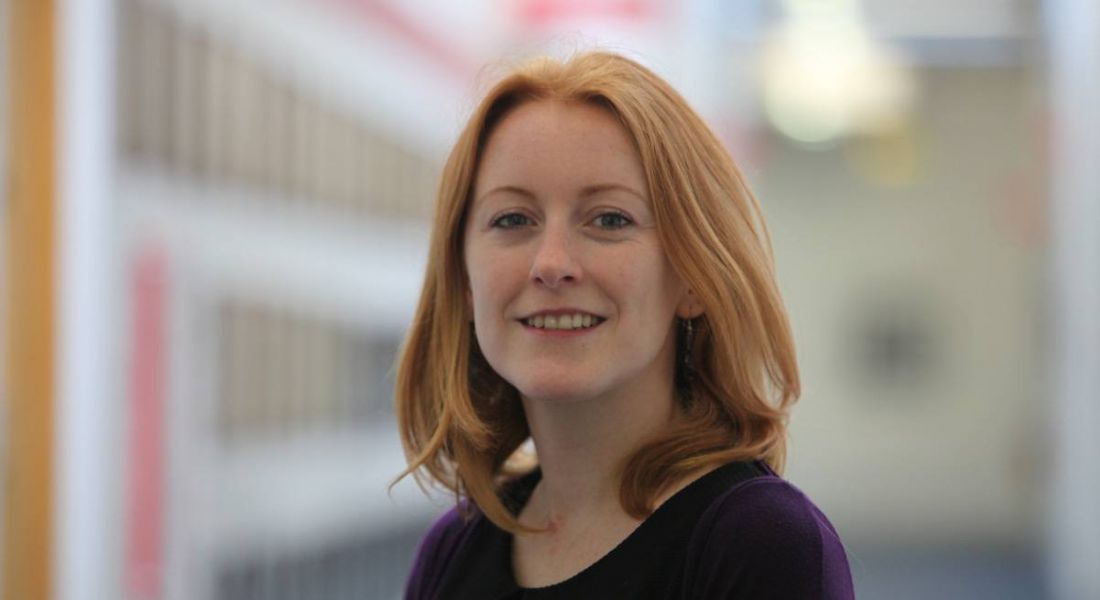The rate of change in technology is so fast, at least some of your tech education is bound to become obsolete.
One of the major things anyone working in technology will notice as they progress in their career is how much they never stop learning.
Techonology changes so fast that it can often mean what you learned only a couple of years ago could already be dated.
Siobhán Dervan is software engineer manager at Avaya. She told Siliconrepublic.com how surprised she was at how little a degree in IT can perpare people for a career in the industry.
Here, she talks about the career journey that brought her to her current role, including how the changes in the industry affected her education and experience.
What first stirred your interest in a career in software engineering?
I think my interest was sparked by the rapidly evolving technology devices I encountered when I was growing up, both at home and from my dad’s office. The phenomenally rapid progress, from a super-basic electronic typewriter (plain text on black terminal – some things haven’t changed that much!), to our first Compaq PC, and soon after, a dial-up connection (‘Hang up the phone, I’m on the Internet!’), was both astonishing and intriguing to me.
I fell in love with it all, and technology became the only future I could see for myself – always wondering, ‘What else can I do with this?’
What education and other jobs led you to the role you now have?
I took quite a straight-forward path to my current role, which is more rare than one would expect for a job in IT.
I caught the technology bug at a young age and zeroed in specifically on software engineering courses when applying to university. The research degree I pursued after completing my undergraduate degree at NUI Galway lit the R&D spark for me.
After graduating, I spent my early years in pure development roles before later moving more towards architecture and management as I gained experience and knowledge.
I know many who’ve travelled very different paths than I did to reach the same destination. Throughout my career, I’ve worked with colleagues from an astonishingly wide variety of backgrounds who ultimately gravitated towards IT, from historians to construction workers.
What were the biggest surprises you encountered on your career path?
I was quite astonished by how little a degree in IT realistically prepares one for a career in IT, but, looking back now, I can see why that is. The rate of change in this industry is so great that, by the time you finish your primary degree, at least some of what you learned in first year is as good as obsolete.
Advice I’ve (somewhat) jokingly shared with students considering pursing a career in this industry is that any degree in IT essentially boils down to a few years of doing exercises to develop your logic skills, and learning the key words to Google once you find yourself a job once you graduate!
Was there any one person who was particularly influential as your career developed?
There is no one single person I could name as there have been many already in my career to date – some great managers, inspirational training instructors, enthusiastic graduates and incredibly skillful engineers.
I strongly believe that everyone you encounter as you develop brings some influence to bear on you professionally and/or personally, and it’s important to be open to positive influence but remain vigilant against the negative.
What do you enjoy about your job?
I really enjoy the huge variability and rapid pace of change that’s inherent in a job in R&D. If you’re not particularly enjoying a task, you’re safe in the knowledge that it’s never too long before you’ve moved on to work on a different task.
There’s always some new development on the horizon in our technological world, and the ‘new’ seems to appear faster and faster with every passing year.
Avaya, like most other companies, is in the midst of technological upheaval currently, so there’s always something new to explore and learn here.
What aspects of your personality do you feel make you suited to this job?
I have two particular traits which I believe complement each other very well for a job in engineering. I’m a very (very!) communicative person and have an inherent desire to solve problems logically and efficiently. The latter is presumably a given for all engineers, but I believe that good communication skills is one of the most vital keys for success in any team or organisation.
How did Avaya support you on your career path?
I started my career at Avaya in a purely development role and, through the opportunities made available to me here, have been able to branch into customer engagement, architectural design and engineering management.
The diversity in roles one can take on within our large R&D team here at Avaya means that there is always a broad choice of options to pursue.
What advice would you give to those considering a career in this area?
A career in technology can follow a huge variety of paths, and those paths can often merge or split as you progress through your career – often ending up where you could have never foreseen.
Seek out, and take advantage of, as broad a variety of opportunities as you possibly can. Everything you’ve experienced will shape you in some way, as either lessons learned, inspiration or motivation.
Want to work at Avaya? Check out the Avaya Careers page for current vacancies.




